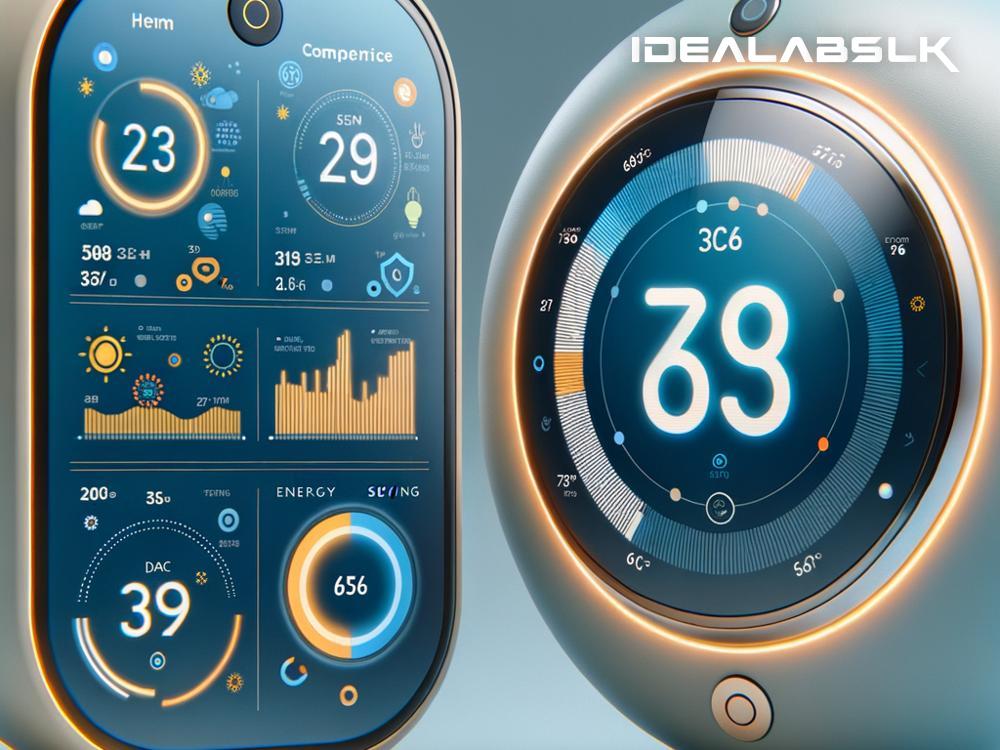When it comes to smart thermostats, two big names often come up: the Nest Thermostat E and the Ecobee Smart Thermostat Premium. Both of these gadgets promise to make your home more comfortable while potentially saving you money on your energy bills. But, which one is actually better at saving energy? Let’s dive into a comparison of these two smart thermostats to help you make an informed decision.
Design and Interface
First up, let's talk about design and ease of use. The Nest Thermostat E rocks a minimalist design with a frosted display that blends well into most home decors. It's pretty straightforward to operate directly from the device or through its app. On the other hand, the Ecobee Smart Thermostat Premium flaunts a more substantial presence with its responsive touch display, which also shows you the weather and other useful info. If you're big on having a more interactive display, Ecobee might be more up your alley.
Installation and Compatibility
When it comes to getting these devices up and running, both are quite user-friendly. The Nest Thermostat E and the Ecobee Smart Thermostat Premium come with detailed instructions and even include stickers to help you remember which wire goes where. The main difference lies in their compatibility with your existing HVAC system. The Ecobee typically requires a C-wire for power, but it includes an adapter in case your system doesn’t have one. Nest, aiming for broader compatibility, doesn't necessarily require a C-wire, making it a tad more flexible in diverse homes.
Smart Features and Energy Saving Capabilities
The crux of the matter is, of course, which thermostat saves more energy. Both thermostats learn your preferences and schedule to adjust your home’s temperature accordingly. The Nest Thermostat E uses its learning algorithm to adapt to your routine, aiming to reduce energy use when you’re not at home. Ecobee's Smart Thermostat Premium, however, relies on its SmartSensor (and supports additional sensors) to detect not just if you're home, but also which rooms are occupied, adjusting temperatures for both comfort and efficiency.
Furthermore, both thermostats provide you with energy consumption reports. These insights can help you understand your habits and make adjustments to save even more. However, the Ecobee might edge out slightly by offering more detailed reports and tips for further savings.
One of Ecobee's standout features is its eco+ software, which learns your schedule and local electricity rates to optimize heating and cooling, potentially offering even greater savings. Nest also attempts real-time savings by using its sensors and weather forecasts to preemptively adjust your home’s climate.
Integration with Smart Home Devices
In today’s interconnected world, how these thermostats play with other smart home devices is crucial. Both the Nest Thermostat E and the Ecobee Smart Thermostat Premium work well within larger smart home ecosystems. Nest, being a part of Google, naturally integrates seamlessly with Google Assistant and other Google Home devices. Ecobee, while independant, isn't left behind, offering compatibility with Amazon Alexa (it even has Alexa built into the thermostat), Apple HomeKit, Google Assistant, and others. This makes either a good choice, depending on which ecosystem you're invested in.
Price and Overall Value
Price is a significant factor for many when choosing between these two. Generally, the Nest Thermostat E is a bit more affordable than the Ecobee Smart Thermostat Premium, but prices can fluctuate, and deals can change this dynamic.
While the initial cost is important, consider the overall value, including potential energy savings. Both brands claim significant savings on heating and cooling bills, but the exact figures can vary based on individual usage patterns, home insulation, and even local climate.
Conclusion
So, which saves more energy? The answer isn't straightforward. Both the Nest Thermostat E and the Ecobee Smart Thermostat Premium have the potential to significantly reduce your energy consumption through smart scheduling, remote access, and targeted heating and cooling. Your choice might come down to which features you value more, the specifics of your home’s HVAC system, and which ecosystem you prefer.
In the end, both thermostats aim to empower homeowners to save energy and money. Whether you lean towards Nest's learning capabilities and Google integration or Ecobee's detailed control, additional sensors, and eco+ features, you're making a step towards a smarter, more energy-efficient home.

